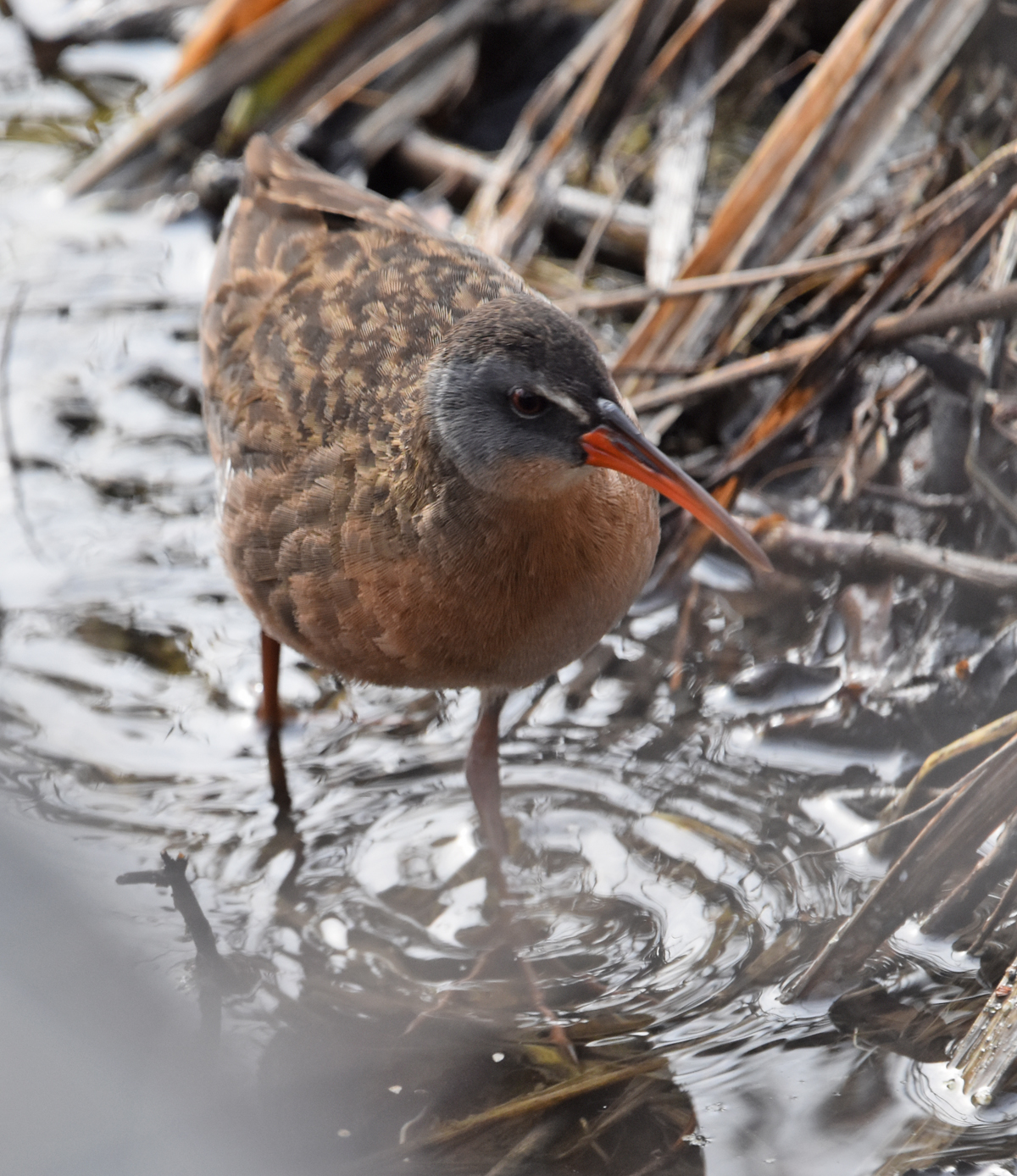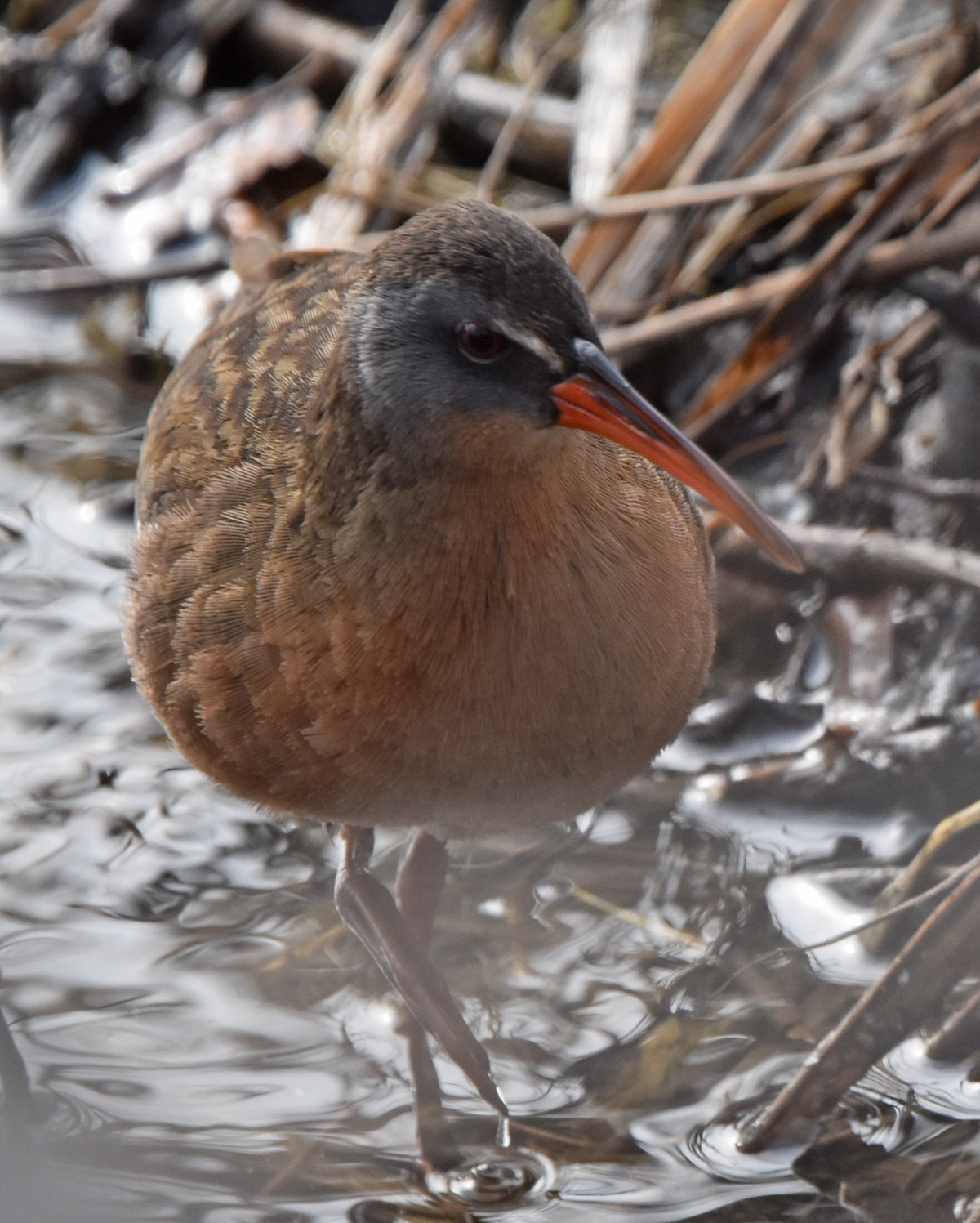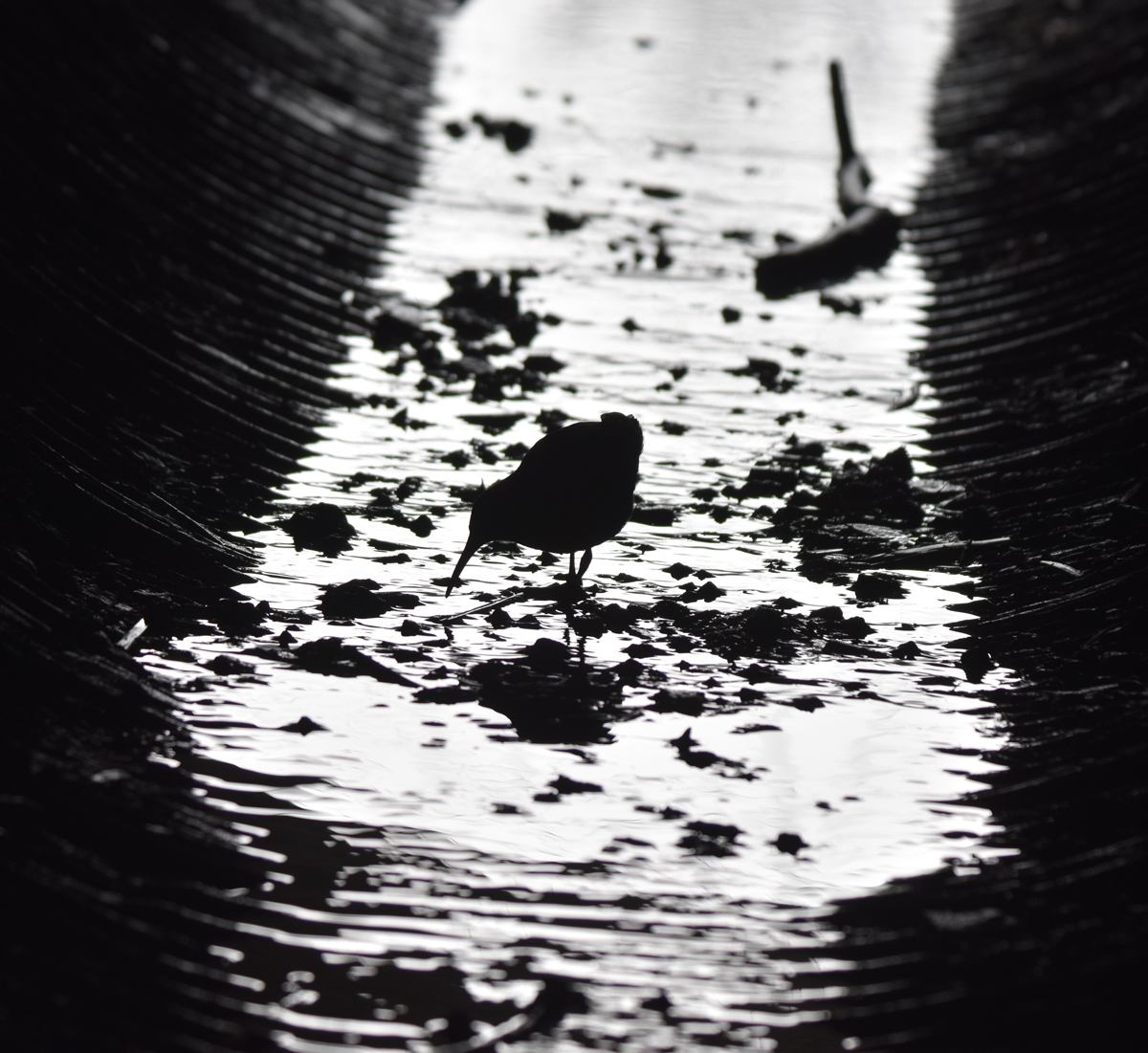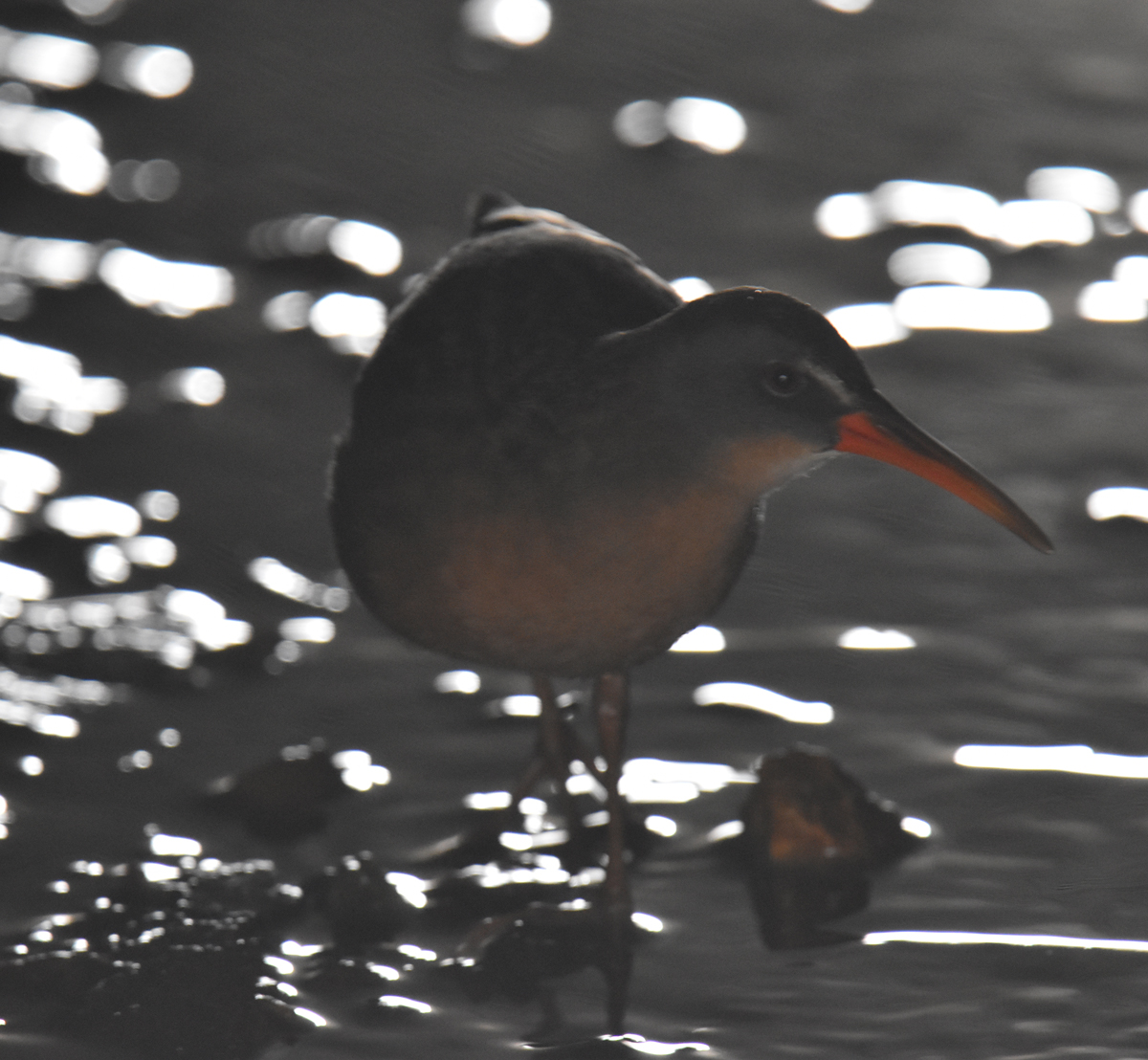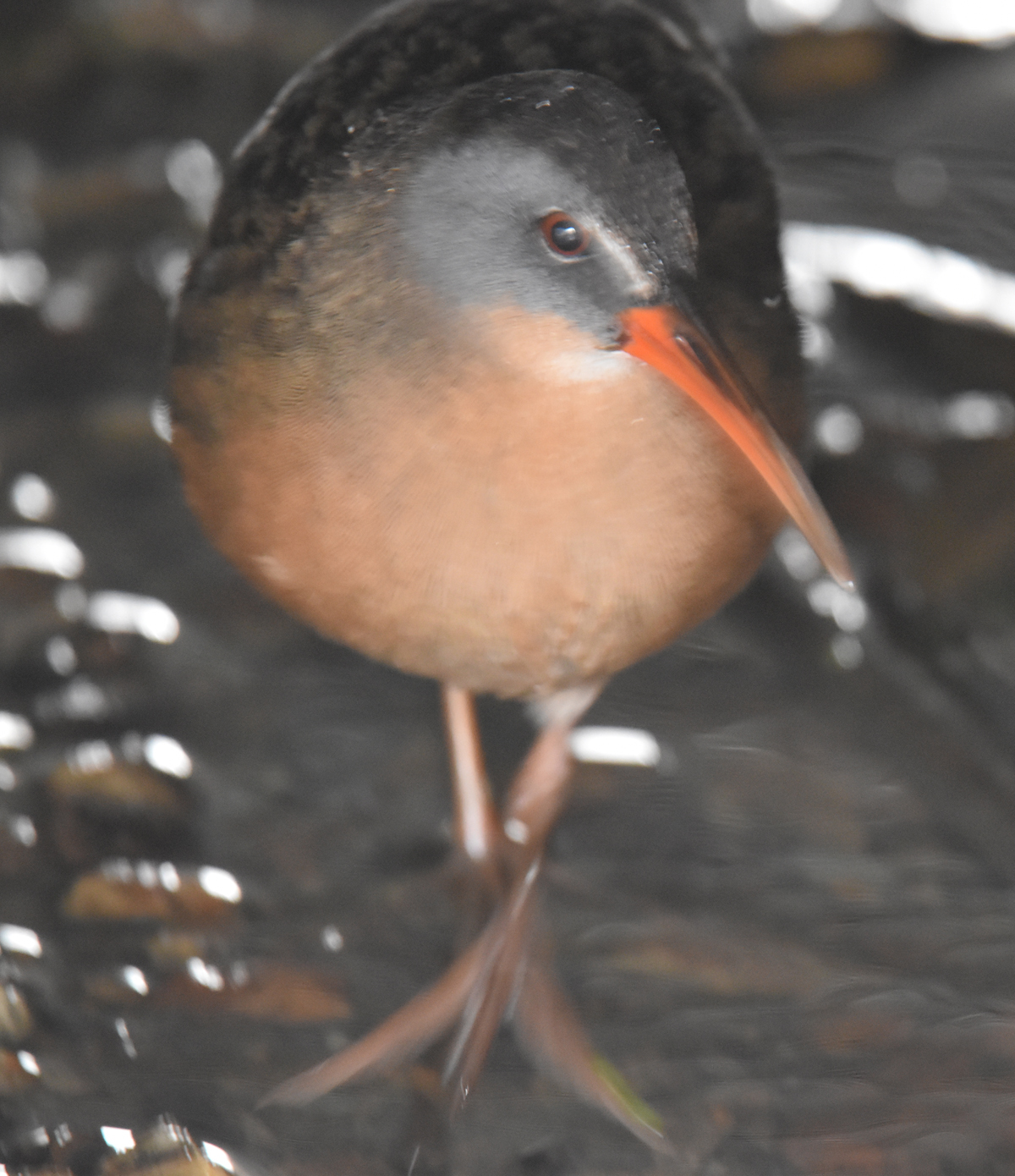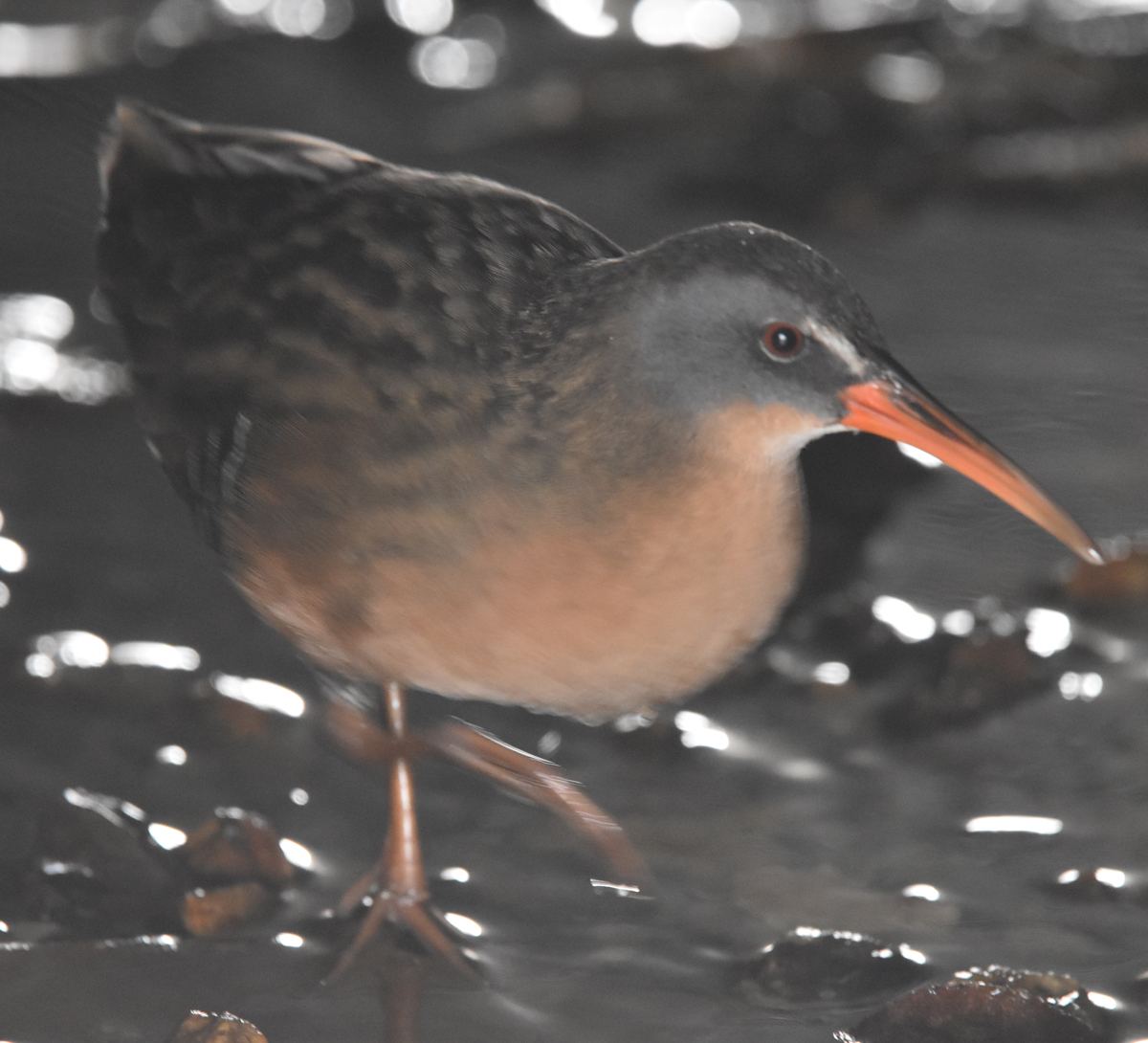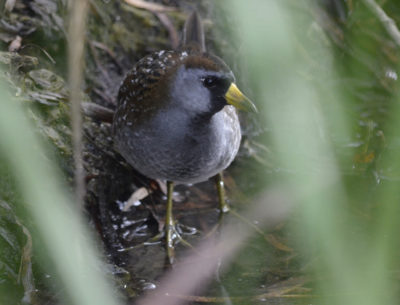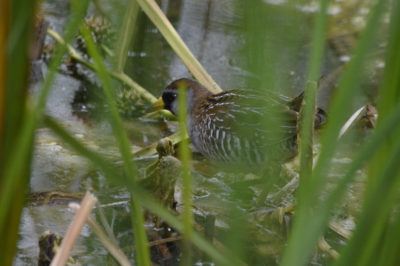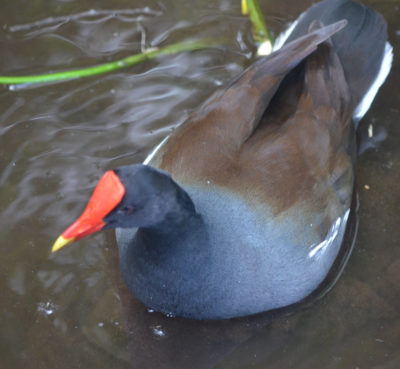There are several small football-shaped birds that like to hide and hunt among the reeds, bulrushes and Phragmites at the edges of ponds, in swamps and in marshes. Most of them are quite secretive and hard to see. On migration, though, these interesting birds often pass through areas with limited cover and are more easily spotted. Early this April, a report came in of a little bird with an orange bill, grey cheeks, a white line from its eye to its beak, brown body and black and white stripes near its legs hunting through along the edge of the duck pond at Colonel Sam Smith Park in Etobicoke, Ontario.
A Virginia Rail Pops Up to Please Admirers at Colonel Samuel Smith Park in Toronto
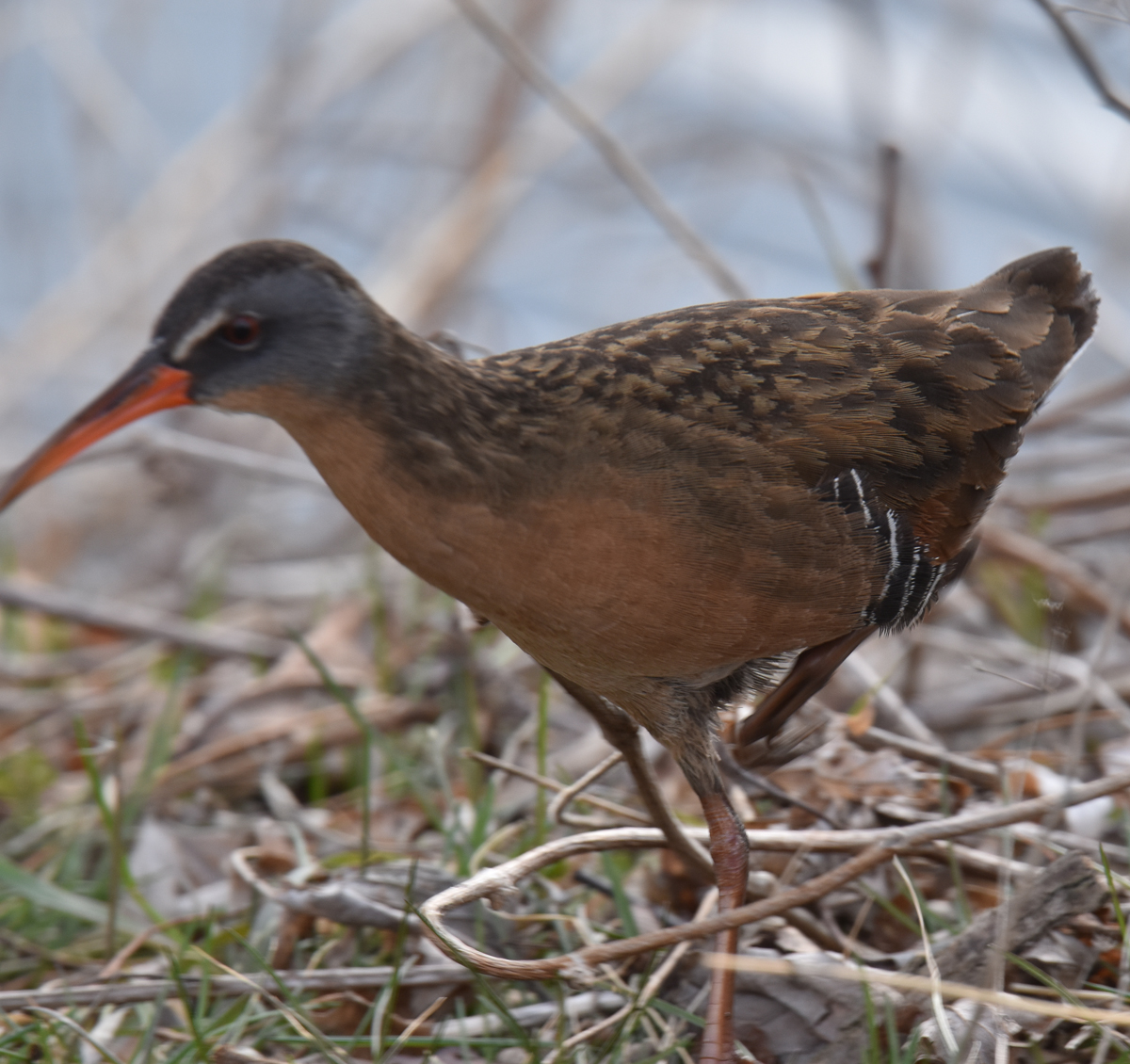
In my dozen photos of the Rail only this one shows the interesting zebra striped feathers: so you won’t necessarily see them depending on the angle you see the bird from.
When I first read on an eBird list that a Virginia Rail had been seen in Toronto, I didn’t immediately race down to see if I could spot it. Rails are shy birds that prefer to stay hidden in reeds, rushes, and tall grasses while they hunt. At Colonel Sam Smith park there are many sloughs, a duck pond and several inlets all of which have Phragmites and tall grassy, reedy plants. I figured my chances of finding a Rail amidst them were poor.
When the bird was still being reported a couple of days later, I thought I’d try to spot it. I’d probably get some good looks at Red-necked and Horned Grebes and migrating ducks even if the Rail proved elusive.
One report I read gave me an important clue: it said the Virginia Rail had been seen “in its usual spot near the culvert by the south parking lot.”
When I Did See the Virginia Rail
I walked around the duck pond enjoying meeting many of the other birds of spring. When I completed my loop over an hour later, no one was standing near the culvert. I stopped to see if the Rail would appear. To my astonishment, it did! At first, I wasn’t sure if the fast-moving bird coming rapidly towards me among the grasses and sticks on the shore was a Rail or a Red-winged Blackbird: all I saw was a bird-blur. I started taking photos and was rewarded when I finally got a partial focus on a brown bird with a bright orange lower bill.
The Rail darted along towards the culvert and then disappeared.
After about a minute wondering if it was snug in against the overhanging bank or inside the culvert, I decided to go to the upstream end and look through.
That sounds a bit easier than it is. The culvert runs under the major foot and bike path. At the north end, it is surrounded by a concrete open-topped, 3-walled box about 3 feet high and 1 foot wide. I’m not sure if the concrete is beaver-related or what purpose it has. It did make a narrow path to walk on. Stooping down on it, though, with my heavy long-lensed camera in hand, to see into the culvert below was a bit of a balancing act. I’m sure I looked amusing.
When I peered into the long dark tunnel, though, I was pleased to see a bird in silhouette. The Virginia Rail was not just travelling through the culvert; it was feeding on things along the way.
I realized I knew nothing about these birds. Was it eating small invertebrates? Or the vegetation? Inside the culvert I could see green algae and some small plants despite the currently low light levels.
Whatever it was after, the Rail would walk a step or two, then peck delicately, repeatedly. If I had to guess, I’d say it was catching something that could move.
Later, at home, I read on AllAboutBirds that these birds eat plant matter and invertebrates in winter and eat almost everything small and aquatic that moves in the summer such as snails, crayfish, insects, fish and frogs. So it probably was eating tiny creatures in the culvert but it could also have been eating some vegetation.
(While waiting around the culvert, I noticed the Cardinals, Mallards and Blackbirds were eating bird seed scattered on the path. I wonder if it was intended for them or if someone had brought it thinking the Rail would eat bird feeder millet?)
After hunting up and down the culvert for a few minutes, the small bird went back out and along the edges of the pond. It then raced up the side of the hill, skittered quickly across the path, and down the far side into the Phragmite slough.
I left, very happy to have seen such an interesting bird while it darted about its business. Virginia Rails are not believed to be uncommon but they are so small and have such a preference for staying hidden safely away among the vegetation that seeing one is an uncommon occurrence for someone like me.
What Other Small Chicken Like Birds Live in Ontario Swamps?
If you are fortunate enough to see a small marsh bird in Ontario there are several possible types:
A Sora has a short yellow bill
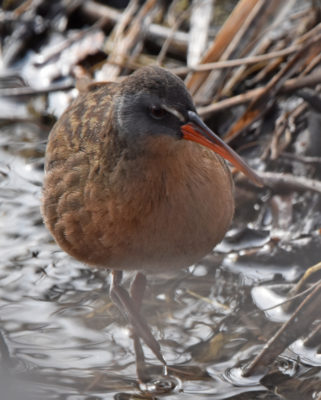
A Virginia Rail has a long orange bill and grey cheeks.
A Yellow Rail is a beige and black and white bird with a short dark bill. They are uncommon in Ontario.
A King Rail has a long dull bill and is fairly light on the face(not grey) and front. They are very uncommon in Ontario.
A Common Gallinule is a dark bird with a black head. The adults have a bright red bill and forehead ‘shield’.
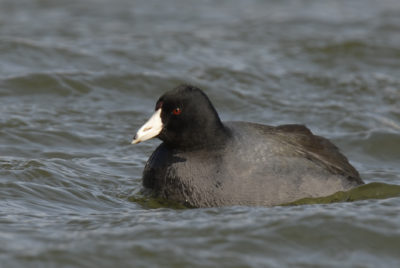
An American Coot is a grey and black bird with a white bill and ‘shield’.
Related Reading
- [A Sora at Sam Smith: apparently this isn’t posted yet!]
- An Old Coot’s Toes and Other Corny Photos
Join In
Did you see the Sam Smith Rail or Sora? Please share your sightings with a comment.

